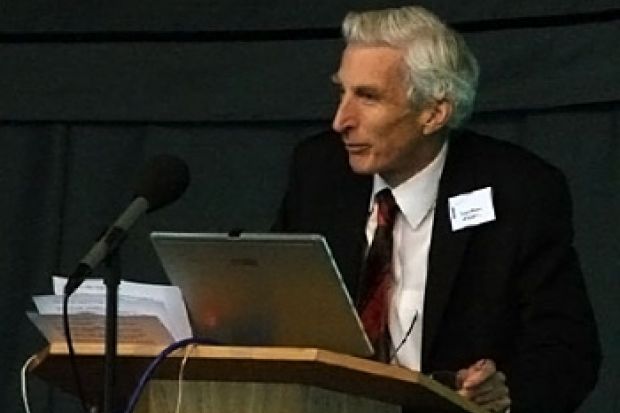In a new pamphlet on higher education in the UK, ‘University Diversity: Freedom, Excellence and Funding for a Global Future’, he says that such a system could be a way to give students let down by poor schooling a “second chance”.
The pamphlet, which will be released on Monday, argues that half of the UK’s young people “do not receive the quality of teaching at school that allows them to qualify for the most competitive university courses".
As a result, the most selective universities need to widen access by allowing such students to “earn their spurs in the less competitive institutions”.
Lord Rees’ proposal is similar to another put forward in 2010 by Simon Gaskell, principal of Queen Mary, University of London, who suggested students take a sandwich year in a teaching institution where they acquire basic skills and knowledge, having been “fired up about the subject” in their first year by research active staff.
Speaking on 19 October at the launch of the pamphlet by social and economic forum Politeia, Lord Rees said that the UK should look to emulate the tiered University of California state system which had strength in both “access and excellence”, rather than the Ivy League group of elite institutions.
“The view of the Ivy League is much too uncritical in the UK,” he said, adding that they “give favourable access to the children of alumni,” a practice which was “socially unjust”.
He also criticised England's new higher education system, where teaching funding follows a student’s choice of course. It was “not obvious that outstanding courses will be supported” under this system because students many not know where excellent departments were located, he said.
“It is an implausible act of faith to believe that the inconstant preferences of poorly-informed and financially pressured students will lead to an optimum restructuring,” the pamphlet says.
The pamphlet also attacks relatively low public spending in the UK on higher education. “Higher education in the US receives far more private money that does ours. But what is less well known is that the public funding in the US is also more generous than ours: as a percentage of GDP it is 1.2 as against 1.1 per cent,” the pamphlet says.
Register to continue
Why register?
- Registration is free and only takes a moment
- Once registered, you can read 3 articles a month
- Sign up for our newsletter
Subscribe
Or subscribe for unlimited access to:
- Unlimited access to news, views, insights & reviews
- Digital editions
- Digital access to THE’s university and college rankings analysis
Already registered or a current subscriber? Login
